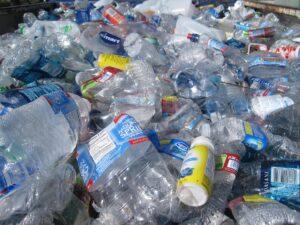A glass revolution instead of a plastic tsunami
While sustainability has become a central topic, millions of tons of plastic packaging are produced every year. Degradable alternatives are promising, but without industrial composting, they often end up in incinerators or landfills, where not only does decomposition fail, but harmful substances can also be released. The two champions of the cycle are paper and glass, which are more promising than their counterparts with their recycling rates and raw materials – this is what the POLCZ expert draws attention to in his analysis.
 Today’s younger generations are growing up in a world where environmental protection is much more on the agenda than decades ago. In addition, plastic consumption and solutions to offset it are also growing rapidly. Compostable packaging is also a result of this, and although it is still in its infancy, it is positively perceived by consumers.
Today’s younger generations are growing up in a world where environmental protection is much more on the agenda than decades ago. In addition, plastic consumption and solutions to offset it are also growing rapidly. Compostable packaging is also a result of this, and although it is still in its infancy, it is positively perceived by consumers.
However, it is a lesser-known fact that most compostable plastics end up incinerated or landfilled due to sorting problems – which is why it is necessary to learn about the different materials and raise awareness. For example, some packaging requires a lot of energy to produce, while others take centuries to decompose, but they all have one thing in common: consumers decide which one to choose.
“Behind the convenient plastic lies an inconvenient reality: what is used for packaging today can become microplastics tomorrow and end up in food, which can have a harmful effect on health. Glass, on the other hand, is clean and reliable – it does not affect the taste of food and is recyclable”
– points out Annamária Éva Kertész, an expert at POLCZ.
Related news
Fashion, drones and sustainability – the new face of agriculture at the AgriTech InnoExpo event
🎧 Hallgasd a cikket: Lejátszás Szünet Folytatás Leállítás Nyelv: Auto…
Read more >dm welcomes customers with stable prices and a superb price-value ratio
🎧 Hallgasd a cikket: Lejátszás Szünet Folytatás Leállítás Nyelv: Auto…
Read more >Related news
Nestlé to sell remaining ice-cream assets but commits to Froneri venture
🎧 Hallgasd a cikket: Lejátszás Szünet Folytatás Leállítás Nyelv: Auto…
Read more >40 secure jobs, sustainable solutions – new BURGER KING® in Csepel
🎧 Hallgasd a cikket: Lejátszás Szünet Folytatás Leállítás Nyelv: Auto…
Read more >








